Featured
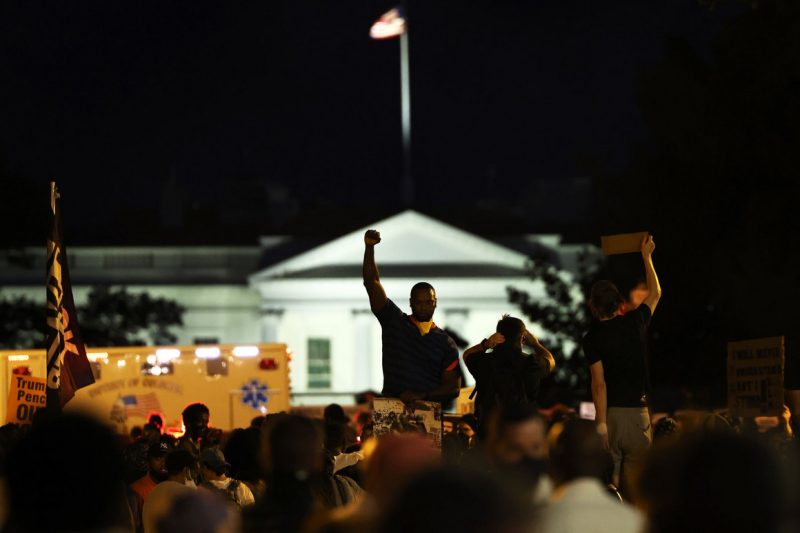 A Blueprint for Racial Healing in the Biden Era. By Sheryll Cashin / Politico
A Blueprint for Racial Healing in the Biden Era. By Sheryll Cashin / Politico
The 2020 election offered stark, competing visions for American race relations and politics. President Donald Trump cast himself to suburban white voters as their protecter against anarchy, riots and racial integration of their neighborhoods. He embraced Confederate symbols as American heritage, and encouraged and authorized violence against Black Lives Matter protesters. He also constructed a false polarity in which fighting systemic racism was deemed unpatriotic and un-American. That Biden won—with nearly 80 million votes, a record—along with Kamala Harris as the first Black, South Asian American and female vice president, suggests real possibilities for a multiracial democracy that values Black lives and brings all people along. Read more
Political / Social
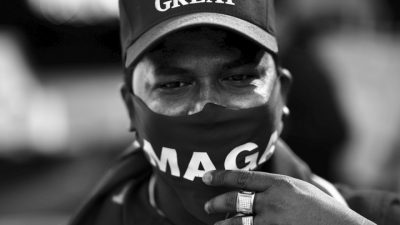 Why Black Men and Women Vote So Differently. By Leah Wright Rigueur / The Atlantic
Why Black Men and Women Vote So Differently. By Leah Wright Rigueur / The Atlantic
In the past four years, numerous Black Republican figures, as well as a handful of Black celebrities, have endorsed President Donald Trump or expressed a willingness to work with his administration. Almost all of these endorsements have come from men, reflecting an on-the-ground truth: 12 percent of Black men voted for Trump in the 2020 presidential election, while just 6 percent of Black women did the same, according to the AP VoteCast survey. Many Black men who voted for Trump did so in spite of Trump. For this small but intriguing group of voters, this election was a homecoming of sorts: a return to their long-standing, pre-Obama relationship with the Republican Party. Read more
Related: Roughly 9 Out Of 10 Black Women Voted For Democrats This Election. By Alanna Vagianos / HuffPost
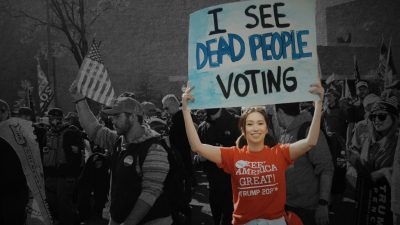 Trump is trying to disenfranchise Black voters. The GOP isn’t stopping him. By Eugene Robinson / Wash Post
Trump is trying to disenfranchise Black voters. The GOP isn’t stopping him. By Eugene Robinson / Wash Post
President Trump is trying to cling to power by disenfranchising hundreds of thousands of Black voters. His desperate legal maneuvering is straight out of the old racist Jim Crow playbook — and the vast majority of elected Republicans, to their eternal shame, are going along with him — whether actively or passively. Read more
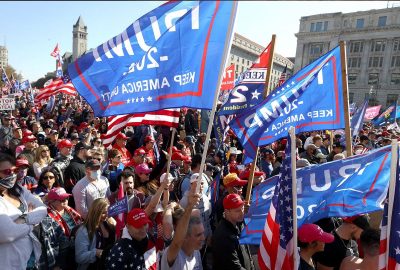 Make fun of the “Million MAGA March” all you want — white supremacy has not been defeated. By Chauncey DeVega / Salon
Make fun of the “Million MAGA March” all you want — white supremacy has not been defeated. By Chauncey DeVega / Salon
In 1925, 50,000 members of the Ku Klux Klan marched on Washington, in what remains one of the largest marches in U.S. history. During the first decades of the 20th century, the Klan was one of the most powerful and influential civil society organizations in the country. Its members included doctors, lawyers and other members of the white professional class, including a future U.S. senator, a future Supreme Court justice and (according to various rumors) at least one future president. The Klan was and remains one of the largest terrorist organizations in American history. Last Saturday, between 10,0000 to 15,000 supporters of Donald Trump, including right-wing street thugs, “militia” members, neo-Nazis and neo-Confederates, Klansmen, and other extremists gathered in Washington for the “Million MAGA March” in support of their soon-to-be deposed leader. Read more
Related: Wisconsin’s Rising Democratic Star Lt. Gov. Mandela Barnes Is Scared. By Tara Golshan / HuffPost
 COVID-19: As pandemic worsens, political partisanship deepens. By Alia E. Dastagir / USA Today
COVID-19: As pandemic worsens, political partisanship deepens. By Alia E. Dastagir / USA Today
When the first U.S. case of COVID-19 was reported in January, most people would not have predicted this by Thanksgiving: 11 million Americans infected, more than 250,000 dead, and a fall surge of record-breaking daily cases as the virus runs rampant. Yet even as COVID-19 cases pile up at a staggering rate, in a politically divided nation Republicans and Democrats remain in stark disagreement over the threat of the virus and the steps necessary to mitigate its spread. Read more
Related: The Biden adviser focused on the pandemic’s stark racial disparities. By Joanne Kenen / Politico
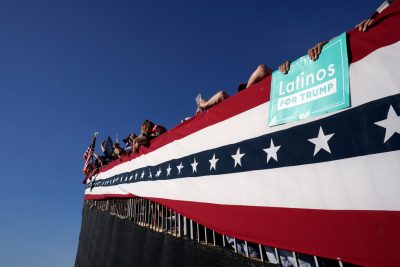 Culture wars fuel Trump’s blue-collar Latino gains. By Marc Caputo / Politico
Culture wars fuel Trump’s blue-collar Latino gains. By Marc Caputo / Politico
Despite four years of being defined as a racist for his rhetoric and harsh immigration policies, Trump improved his margins in 78 of the nation’s 100 majority-Hispanic counties. And he did better with Latinos in exit polls of each of the top 10 battleground states, a POLITICO review of election data found. “Most Latinos identify first as working-class Americans, and Trump spoke to that,” said Josh Zaragoza, a top Democratic data specialist in Arizona, adding that Hispanic men in particular “are very entrepreneurial. Their economic language is more aligned with the way Republicans speak: pulling yourself up by your bootstraps, owning your own business.” Read more
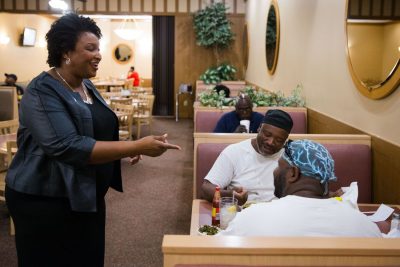 Stacey Abrams On Flipping Georgia Blue in the 2020 Election. By Rebecca Traister / New York Mag
Stacey Abrams On Flipping Georgia Blue in the 2020 Election. By Rebecca Traister / New York Mag
In the flood of post-election analysis of muddied results and still-emerging data, answers can seem simple and obvious. But real life, real states, and real political organizing don’t always lend themselves to easy explanations or diagnoses. And what’s been missing from some of the adulation of Abrams is a view of how much work — by so many people, from so many angles, over so many years — has always undergirded her efforts in Georgia; I wanted to hear a fuller story, from the woman whose capacious vision sets her apart from so many currently telling the story of politics and power in America. Read more
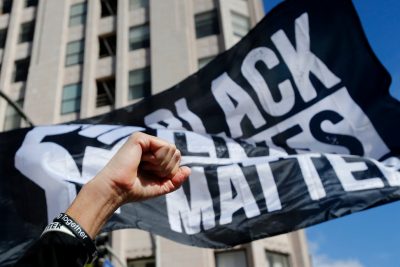 Black Lives Matter activists strike back at Dems slamming ‘defund the police.’ By Laura Barron-Lopez and Holly Gtterbein / Politico
Black Lives Matter activists strike back at Dems slamming ‘defund the police.’ By Laura Barron-Lopez and Holly Gtterbein / Politico
Black Lives Matter activists have a message for Democrats blaming the party’s losses down-ballot on their call to “defund the police”: Show us the receipts. In the wake of weekslong public attacks on the slogan by Democratic elected officials, movement leaders are mulling counteroffensives to push back on the criticism. A major theme of any response would be that moderate Democrats have failed to produce evidence to prove that the “defund” push caused unexpected defeats in House and Senate races. Instead, they say, the complaints are based on isolated anecdotes. Read more
 Black businesses are fighting for their lives. We can’t afford to lose them. By Michelle Singletary / Wash Post
Black businesses are fighting for their lives. We can’t afford to lose them. By Michelle Singletary / Wash Post
A significant percentage of minority-owned companies never apply for financing, because they don’t believe they would be approved, according to a 2019 survey of small businesses by the Federal Reserve Bank of Atlanta. The Fed report also said that, on average, Black business owners were approved for smaller loans than comparable White business owners. Because of the pandemic, the number of businesses in the United States plummeted by 22 percent from February to April, according to a working paper written by Robert Fairlie, an economics professor at the University of California at Santa Cruz, and circulated by the National Bureau of Economic Research. The drop was the largest on record. Black businesses were hit especially hard, with a 41 percent drop to 640,000 from 1.1 million. Read more
 Black Farmers Have Been Robbed of Land. A New Bill Would Give Them a “Quantum Leap” Toward Justice. By Tom Philpot / Mother Jones
Black Farmers Have Been Robbed of Land. A New Bill Would Give Them a “Quantum Leap” Toward Justice. By Tom Philpot / Mother Jones
A new Senate bill, called the Justice for Black Farmers Act, set to be released November 30, would mount a long-delayed federal effort to reverse the “destructive forces that were unleashed upon Black farmers over the past century—one of the dark corners of shame in American history,” lead sponsor Sen. Cory Booker (D-N.J.) told Mother Jones. Read more
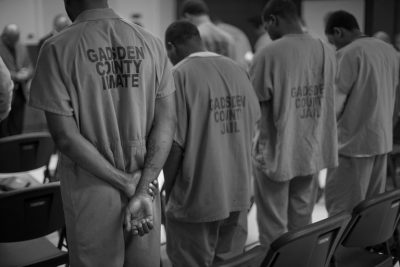 Supervision, once intended to help offenders, ups mass incarceration. By Miriam Aroni Krinsky and Vincent Schiraldi / USA Today
Supervision, once intended to help offenders, ups mass incarceration. By Miriam Aroni Krinsky and Vincent Schiraldi / USA Today
More than 50 reform-minded elected prosecutors have joined 90 current and former probation and parole leaders this week in issuing a statement calling for eliminating incarceration for technical parole and probation violations, reducing reincarceration for low-level new offenses by those under supervision, downsizing probation and parole, and making supervision remains “less punitive and more hopeful, equitable and restorative.” Read more
History / Culture
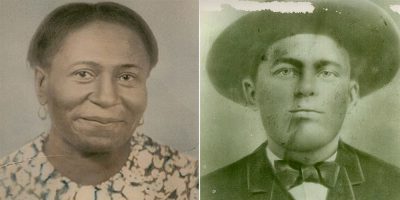 The Black Native American descendants fighting for the right to belong. By Claire Tighe / NBC News
The Black Native American descendants fighting for the right to belong. By Claire Tighe / NBC News
Cooking was just one way Grayson learned about the rich history and culture of the generations of Black Native Americans who came before her. “I was always keenly aware of my African ancestry,” said Grayson, 51. Part of her lineage was Native, too. “I always knew that we were Creek.”‘ One of those Black Creek ancestors was Grayson’s great-grandmother America Cohee. For more than 40 years, Black Creek descendants like Rhonda Grayson have been fighting to regain citizenship in the Creek tribe. Because their lineage also harks back to the dark days of chattel slavery, these would-be members of the Creek Nation have been shut out. In a year marked by historic uprisings in support of Black lives, these Black Native Americans say now is the time to acknowledge their rights, too. Read more
 UC Berkeley removed the names of ‘racist’ figures from two of its buildings. By Christina Zdanowicz / CNN
UC Berkeley removed the names of ‘racist’ figures from two of its buildings. By Christina Zdanowicz / CNN
The LeConte brothers came to Berkeley in 1869. Both were in the Confederate Army during the Civil War. They inherited a family plantation of 200 slaves in Georgia. “Joseph LeConte was an outspoken advocate of deeply racist views,” Christ said in the statement. “Despite their service to the university, the brothers’ words and deeds profoundly conflict with our values, and with our commitment to equity, inclusion and a true sense of belonging for every member of our community.” The other building was named after Barrows, who was the president of the University of California from 1919 to 1923 and a faculty member for three decades, the university said. “He believed and wrote, for example, that Europeans and white people were the only ‘great historical race. Read more
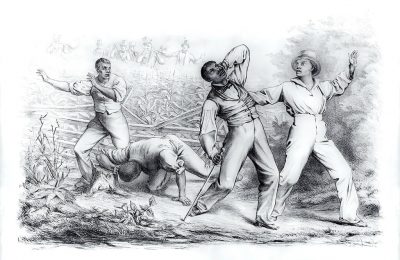 Enslaved, Terrorized, Disenfranchised: Black Americans Still Found Ways to Change America. By Kerri Greenidge / NYT
Enslaved, Terrorized, Disenfranchised: Black Americans Still Found Ways to Change America. By Kerri Greenidge / NYT
The story of how Black people in a slaveholding society affected federal policy by their movements, by their defiance and by their very existence has been told before. But rarely has this story been told as compassionately, or rendered as beautifully, as it is in two new books, “South to Freedom” and “The Kidnapping Club,” by the historians Alice L. Baumgartner and Jonathan Daniel Wells, respectively. Read more
 St. Mary’s College of Maryland unveils memorial to enslaved people on its campus. By Joe Heim / Wash Post
St. Mary’s College of Maryland unveils memorial to enslaved people on its campus. By Joe Heim / Wash Post
Work had just begun on a new stadium and sports fields at the public liberal arts college in southern Maryland when President Tuajuanda C. Jordan learned that a required archaeological survey on the proposed construction site had unearthed a trove of slavery artifacts. On land where college games were set to be played once lived children, women and men who were kept as property. After the artifacts, including clay pipes and broken pottery, were uncovered, Jordan said she immediately knew she wanted to do something to honor these individuals whose existence had long been covered by dirt and hidden from history’s lens. Read more
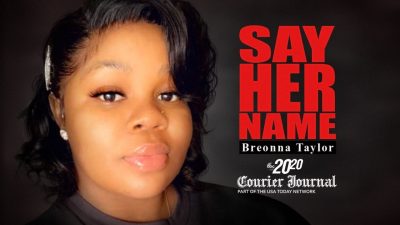 20/20 Breonna Taylor story: 5 things to watch from ABC/Courier Journal. By Tessa Duvall / Courier Journal
20/20 Breonna Taylor story: 5 things to watch from ABC/Courier Journal. By Tessa Duvall / Courier Journal
The Courier Journal and ABC News debuted a documentary Friday night about the life and death of Breonna Taylor, the 26-year-old Black woman who was fatally shot in her apartment by Louisville police and has since become a national symbol for the racial justice movement. The two-hour 20/20 and Courier Journal special was a comprehensive look at the case that led police to Taylor’s apartment door on March 13, the ensuing investigation into her death, the protests that have gripped Louisville since May and Taylor’s legacy through police reform. (You can watch it here on demand at ABC and on Hulu by going to 2020 abcnews.com) Read more
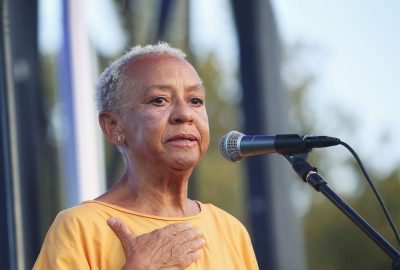 Poet Nikki Giovanni shares her wisdom about Biden, cowardly racism, and why love is a pineapple. By D. Watkins / Salon
Poet Nikki Giovanni shares her wisdom about Biden, cowardly racism, and why love is a pineapple. By D. Watkins / Salon
You can watch my “Salon Talks” episode with Giovanni here, or read a Q&A of our conversation below to hear more about her legendary sit-down with James Baldwin and why it continues to resurface online, how she is handling the COVID-19 lockdown as an Appalachian, and why she knows we will be alright after the Trump administration leaves. And check out the end, where she reads a poem from the collection. Watch here
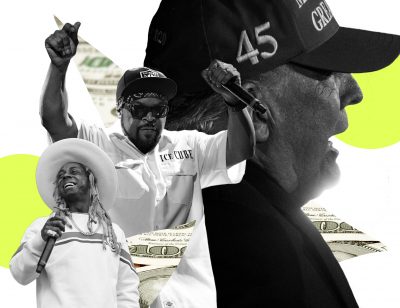 Some famous rappers backed Trump’s campaign. Did it matter? By Clyde McGrady / Wash Post
Some famous rappers backed Trump’s campaign. Did it matter? By Clyde McGrady / Wash Post
The Washington Post sent messages seeking comment to representatives for Ice Cube, Lil Wayne and Lil Pump and received no responses. In any case, endorsements from a handful of famous rappers weren’t enough to put Trump over the top. No matter to him; the president had nothing to lose in the deal. But what about Ice Cube, Lil Wayne and Lil Pump? Could throwing in for Trump cost them with fans? Read more
Sports
 On Running While Black, With More Hope Than Before. By Kurt Streeter / NYT
On Running While Black, With More Hope Than Before. By Kurt Streeter / NYT
Though this is a place that leans left politically, visible displays of support for Black human rights have been scarce. But then Floyd died in Minneapolis after a white police officer pinned him to the ground, knee upon neck. As the country heaved in protest over racism that stretched back four centuries, something changed where we live — on the surface, at least. Like Black joggers across the country, we saw the burst of supportive flags, placards and murals. They gave some comfort to a guy like me, unsure and anxious about our place in a community we enjoy. I could not stop wondering what it all meant. Read more
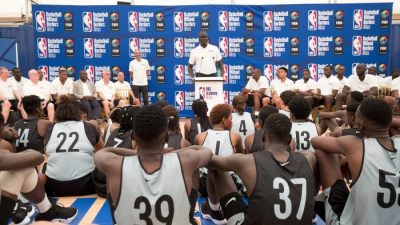 The Nigerian influence over the 2020 NBA draft. By Martenzie Johnson / The Undefeated
The Nigerian influence over the 2020 NBA draft. By Martenzie Johnson / The Undefeated
Headed into Wednesday, eight players either from Nigeria or with a parent from the country could be drafted by one of the league’s 30 teams, which would mark not only the most Nigerians selected in a single year, but also the most for players of African origin. Five such players were drafted in 2016. Read more
 As M.L.S. Playoffs Open, Black Players Press for Progress. By Miriti Murungi / NYT
As M.L.S. Playoffs Open, Black Players Press for Progress. By Miriti Murungi / NYT
As the messages “MLS Unites Against Racism” and “Black Lives Matter” were displayed on the digital sideline advertising boards, the referee and the players from the Chicago Fire and New York City F.C. dropped to one knee and solemnly bowed their heads. Well, some of them did. Others stood and stared ahead with a steely focus. Two more, just outside the midfield circle, used the moment to have a hushed conversation. Read more
 Megan Rapinoe on taking a knee: ‘White people were mad. Whew, were they mad.’ By Megan Rapinoe / The Guardian
Megan Rapinoe on taking a knee: ‘White people were mad. Whew, were they mad.’ By Megan Rapinoe / The Guardian
In an extract from her new book, One Life, the USA World Cup winner talks about the outrage that followed her decision to support Colin Kaepernick and kneel during the national anthem. Megan Rapinoe kneels during the national anthem before the match between USA and Thailand in September 2016. Read more
Site Information
Visit our home page for more articles, book/podcast and video favorites. And at the top of this page register your email to receive notification of new editions of Race Inquiry Digest. Click here for earlier Digests.
About Race Inquiry and Race Inquiry Digest. The Digest is published on Mondays and Thursdays.
Use the buttons below to share the Digest in an email, or post to your Facebook, Linkedin or Twitter accounts.